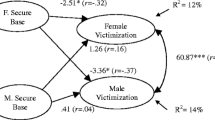Abstract
While sociocultural scholarship has attempted an ecological explanation of intimate partner violence, it has largely been criticized for ignoring dispositional factors of both perpetrators and victims. Dependent personality and attachment-related emotional problems have been implicated in the extant literature as major intrapsychic processes involved in the perpetration and victimization of partner abuse, particularly in Western societies. These studies largely rely on a cultural background of individualism as a social representation to explain the behaviour of both victims and perpetrators of dependency and attachment-related spousal violence as a form of a psychopathology. This article discusses partner dependency and jealousy-motivated spousal violence as socioculturally situated, dependent on contextual and relational conditions of meaning embedded in the communal society of Ghana. It highlights Ghanaian communal personality, gendered socialization and meaning systems of marriage as salient sociocultural features for conceptualizing partner dependency and emotional-related spousal violence.
Similar content being viewed by others
References
Adams, G. (2005). The cultural grounding of personal relationship: Enemyship in north American and west African worlds. Journal of Personality and Social Psychology, 88(6), 948–968.
Adams, G., & Dzokoto, A. V. (2003). Self and identity in African studies. Self and Identity, 2, 345–359.
Adinkrah, M. (2012). Better dead than dishonoured: Masculinity and male suicidal behaviour in contemporary Ghana. Social Science & Medicine, 74(4), 474–481.
Adjei, S. B. (2012). Accounting for spousal abuse in Ghana (master thesis). Retrieved from: http://hdl.handle.net/11250/270835.
Adjei, S. B. (2015a). Masculinity and spousal violence: Discursive accounts of husbands who abuse their wives in Ghana. Journal of Family Violence (in press).
Adjei, S. B. (2015b). Entrapment of victims of spousal abuse in Ghana: A discursive analysis of family identity and agency of battered women. Journal of Interpersonal Violence. Advanced Online Publication. doi:10.1177/0886260515586375.
Adomako-Ampofo, A., & Boateng, J. (2007). Multiple meanings of manhood among boys in Ghana. In T. Shefer et al. (Eds.), From boys to men: Social constructions of masculinity in contemporary society (pp. 50–74). Lansdowne: UCT Press.
Allport, G. W. (1948). Forward. In G. W. Lewin (Ed.), Resolving social conflicts: Selected papers on group dynamics (pp. vii–xiv). New York: Harper & Row.
APA (2000). Diagnostic and Statistical Manual of Mental Disorders (4th Ed., TR). Washington DC, American Psychiatric Association.
Babcock, J. C., Costa, D. M., Green, C. E., & Eckhardt, C. I. (2004). What situations induce intimate partner violence? A reliability and validity study of the proximal antecedents to violent episodes (PAVE) scale. Journal of Family Psychology, 18, 433–442.
Bandura, A. (1999). Moral disengagement in the perpetration of inhumanities. Personality and Social Psychology Review, 3, 193–209.
Berecz, J. M. (2009). Theories of personality: A zonal perspective. Boston:Allyn & Bacon.
Bornstein, R. F. (2005). The dependent patient: A practitioner’s guide. Washington DC:American Psychological Association.
Bornstein, R. F. (2006). The complex relationship between dependency and domestic violence. American Psychologist, 61(6), 595–606.
Bush, C. R., Bush, J. P., & Jennings, J. (1988). Effects of jealousy threats on relationship perceptions and emotions. Journal of Social and Personal Relationships, 5, 285–303.
Dutton, D. G. (1998). The abusive personality: Violence and control in intimate relationships. New York:Guilford Press.
Dutton, D. G. (2006). Rethinking domestic violence. Vancouver, British Columbia:University of British Columbia press.
Groes-Green, C. (2009). Hegemonic and subordinated masculinities: Class, violence and sexual performance among young Mozambican men. Nordic Journal of African Studies, 18(4), 286–304.
Gyekye, K. (1996). African cultural values. An introduction. Accra:Sankofa Publishing.
Horsfall, J. (2001). Gender and mental health illness: An Australian overview. Issues in Mental Health Nursing, 22(4), 421–438.
Ikuenobe, P. (2006). Philosophical perspectives on communalism and morality in African traditions. Lanham:Lexington Books.
Jewkes, R. (2002). Intimate partner violence: Causes and prevention. Lancet, 359, 1423–1429.
Kalmuss, S. D., & Straus, A. M. (1982). Wife’s marital dependency and wife abuse. Journal of Marriage and Family, 44(2), 277–286.
Kaplan, M. (1983). A woman’s view of DSM-III. American Psychologist, 38, 786–792.
Kaukinen, C. (2004). Status compatibility, physical violence, and emotional abuse in intimate relationships. Journal of Marriage and the Family, 66, 452–471.
Loas, G., Cormier, J. & Perez-Diaz, F. (2011). Dependent personality disorder and physical abuse. Psychiatry Research, 185, 167–170.
Menkiti, I. (1984). Person and community in African traditional thought. In R. A. Wright (Ed.), African philosophy: An introduction. New York: university Press of America.
Moghaddam, F. M. (2010). Intersubjectivity, interobjectivity, and the embryonic fallacy in development science. Culture and Psychology, 16(4), 465–475.
Murphy, C. M., Meyer, S. L., & O’Leary, K. D. (1994). Dependency characteristics of partner assaultive men. Journal of Abnormal Psychology, 103, 729–735.
Nukunya, G. K. (2003). Tradition and Change in Ghana: An Introduction to Sociology (2nd ed., ). Accra:Ghana Universities Press.
Ofei-Aboagye, O. R. (1994). Altering the strands of the fabric: A preliminary look at domestic violence in Ghana. Feminism and the law, 19(4), 924–938.
Scott, E. K., London, A. S., & Myers, N. A. (2002). Dangerous dependencies: The intersection of welfare reform and domestic violence. Gender and Society, 16, 878–897.
Shinn, M., & Toohey, M. S. (2003). Community contexts of human welfare. Annual Review of Psychology, 54, 427–459.
Silberschmidt, M. (2001). Disempowerment of men in rural and urban east Africa: Implications for male identity and sexual behaviour. World Development, 29(4), 657–671.
Valsiner, J. (2014). An invitation to cultural psychology. London:Sage Publications Ltd..
Vygotsky, L. S. (1978). Mind in Society: The Development of Higher Psychological Processes. Cambridge, MA:Harvard University Press.
Author information
Authors and Affiliations
Corresponding author
Rights and permissions
About this article
Cite this article
Adjei, S.B. Partner Dependency and Intimate Partner Abuse: A Sociocultural Grounding of Spousal Abuse in Ghana. Psychol Stud 60, 422–427 (2015). https://doi.org/10.1007/s12646-015-0336-4
Received:
Accepted:
Published:
Issue Date:
DOI: https://doi.org/10.1007/s12646-015-0336-4




